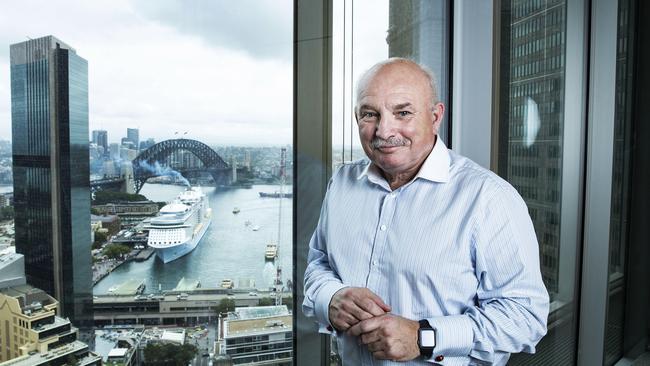Existing PNG deal safe but P’nyang may need work, says Oil Search chief Peter Botten
Upheaval shouldn’t affect existing PNG agreements but deals in play may need work, Oils Search says.

Oil Search says Papua New Guinea’s newly-formed government is likely to demand extra concessions on the P’nyang gas deal currently under negotiation. But it expects the already-signed $16 billion Papua LNG pact to emerge unscathed following recent political upheaval in the country.
On Thursday new PNG Prime Minister James Marape outlined plans to push for higher taxes from PNG’s resources sector over time. He also stressed the need for a stable foreign investment environment to boost the country’s revenue.
An owner of a 29 per cent stake in PNG LNG and a 22 per cent share of the Total-led Papua LNG, Oil Search helped strike the latter deal with deposed prime minister Peter O’Neill in April. But it says that agreement should remain intact, despite the change of leaders.
“I don’t anticipate there will be any changes to the Papua LNG gas accord. I’m confident about that, although I’m not 100 per cent confident, because I need to sit down with government, as does Total as operator,” Oil Search chief executive Peter Botten said.
“But if you believe the prime minister’s words last night, if you’ve got an agreement he will be sticking by it.”
Mr Botten cultivated a close relationship with Mr O’Neill over his quarter-century career at the top of Oil Search, raising concern among some analysts the veteran politician’s departure may delay a long-awaited plan to double LNG volume from the country’s existing PNG LNG plant.
Concessions were likely to be made when Oil Search and partners Santos and energy giant ExxonMobil met to cement the terms of the P’nyang component of the expansion, Mr Botten said.
However they would broadly be in line with those already agreed under the Papua LNG deal, he said.
“I would anticipate the concessions that went from the PNG LNG fiscal regime to Papua LNG regime will be applied up to P’nyang. I anticipate that will be the case,” Mr Botten said.
PNG’s new leader was a “nice guy, down to earth and straightforward”, he said.
Oil Search has held one meeting with Mr Marape since he was nominated as prime minister last Thursday and it plans to hold a second meeting in the next few weeks.
Still, the mood remains uncertain, with some of Mr Marape’s supporters pushing more strongly for PNG to grab a greater share of minerals wealth, given the underwhelming return from the PNG LNG project, which has been exporting gas since 2014.
Political ructions may spark delays and allow international rivals to leapfrog PNG in supplying gas to Asian buyers by a critical 2024 demand window, consultancy Wood Mackenzie said last week.
Mr Botten echoed that warning, telling the Sydney Mining Club on Thursday that delays could imperil the ability of PNG to compete in the international LNG market.
“We cannot wait too long before our place in the queue slips,” Mr Botten said. “The government is aware of this, as is the new prime minister.”
Meanwhile, in a speech on Thursday, Mr Marape said any changes to PNG’s resource laws would be made over years, rather than the short-term.
“I am in the business of making huge decisions in as far as the resources laws are concerned. But we will do it very slowly. I’m looking at 2025, in which we will migrate to a new legislative framework,” Mr Marape said.
Oil Search shares, down 0.6 per cent to $6.84 on Thursday, have now shed 11 per cent of their value in the last two weeks.


To join the conversation, please log in. Don't have an account? Register
Join the conversation, you are commenting as Logout